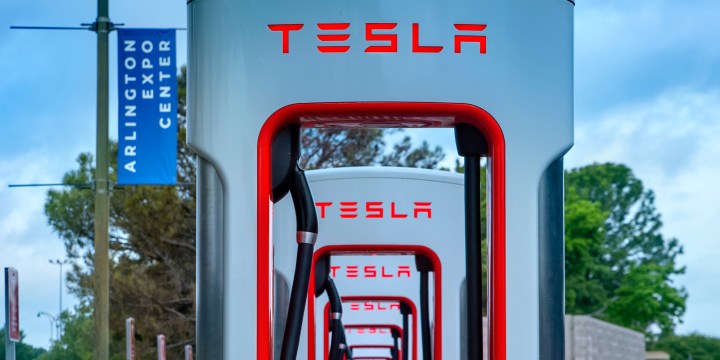BUSINESS REFLECTION
After the Bell: The story of electric cars – gradually, then suddenly

Of the 528,000 cars sold in South Africa in 2022, only 502 were fully electric. Would someone in the Department of Trade and Industry please wake up?
Famously, a character in Ernest Hemingway’s book, The Sun Also Rises, was asked: “How did you go bankrupt?” The character, Mike Campbell, answers: “Two ways. Gradually, then suddenly.”
The quote is well known, but the next line should be equally memorable. When asked what brought it on, he answers: “Friends. I had a lot of friends.”
Bad things often happen this way: gradually, and then suddenly. You are on a bad track, but you keep going because it’s not that bad. You hope things will change. And then, suddenly, everything just kind of culminates in disaster.
But, oddly, the opposite happens too, in a not-dissimilar way. Take, for example, electric cars. It seemed impossible – or at least improbable. Electric car company Tesla was listed in 2010 at $1.28. Almost 10 years later, it was trading at around $16. If I have this right, it was the most shorted stock in history.
Then, in two years it went from $16 to over $400 per share. It’s come down from there, bounced around, but is now trading at around $300 per share. In this latest quarter, more Tesla Ys were sold than Toyota Corollas – for decades the global market leader. Gradually, then suddenly.
The same can be said of renewable energy.
Here are just some of the highlights of the renewable energy market in recent days: On Tuesday this week, energy prices in Europe dropped to below zero. Electric car owners were astounded that they were being paid to charge their cars.
The reason is that good weather in the European summer overwhelms the grid when the sun shines. There has been a massive surge in solar installations, with the result that Germany’s solar output hit 30 gigawatts – about half of SA’s total installed capacity.
As Byron Lotter pointed out in fund manager Vestact’s daily investors’ brief, Europe was already shifting to renewables quite quickly, but then Putin invaded Ukraine and the transition sped up remarkably. And this is not the end of Europe’s efforts: the continent is set to install another 60 gigawatts of new panels in 2023.
And solar panels are not their only effort: Europe already has about 255GW in wind farm capacity and plans to add a further 129GW in the next five years. The US is comparatively a laggard, planning to add only 30GW by the end of the decade.
All of this is starting to change the way the world works. I saw a graph recently that working from home has resulted in cars in the US travelling around 20 billion miles a year less than the trend. That saves around one billion gallons of petrol – a not-inconsiderable chunk of change. But follow the maths. At the moment, only about 1% of the cars on the road in the US are electric. Still, that means 825 million gallons of petrol – 3 billion litres – is being saved.
There is lots of room for change here, and for years to come, it will be barely visible. Then all of a sudden, things will seem as though they changed very quickly. In fact, they probably won’t have, but it will feel that way.
Take China, for example. More electric cars are sold in China than the rest of the world put together – about 6 million a year. The reason is obvious: they are cheaper to buy and cheaper to run. But, as yet, only about 6% of all cars in China are electric. Still, the total number of cars in China is around the same as in the US, so the savings in petrol that might otherwise have been used in the region adds up to 20 billion litres.
Yet, SA seems totally external to these trends and the government appears completely passive about what is happening – even hostile to the idea. Of the 528,000 cars sold in SA in 2022, only 502 were fully electric, FFS.
Would someone in the Department of Trade and Industry, or anywhere, please wake up? Is that too much to ask? DM



















If they could just lift the 35% import duty on electric vehicles it would make a significant difference
Yes! Tim Cohen, can your next article be about the government’s justification for the increased tax on electric cars versus ice cars?
The government rakes in around R6.00 in tax and levies on every liter of fuel sold in South Africa. The ANC needs lots of cash to to fund its corruption program which starts at the top of the ANC NEC cabinet and filters down through the ranks. Electric vehicles don’t use petrol or diesel so, expect major delays from Ramaphosa and his cohorts in any promotion of increasing the sale of electric vehicles.
Tim, you present a rosy outlook regarding electric cars, but in SA they will remain an exotic curiosity for the forseeable future. My local forecourt pumps fuel using a generator when the electricity is off. How do you propose that electric car owners recharge their batteries when arriving in, say, Beaufort West in the middle of a Stage 6 power-outage? I’ll stick to my trusty diesel. PS I’m not anti-solar; our home is 90% powered by solar.